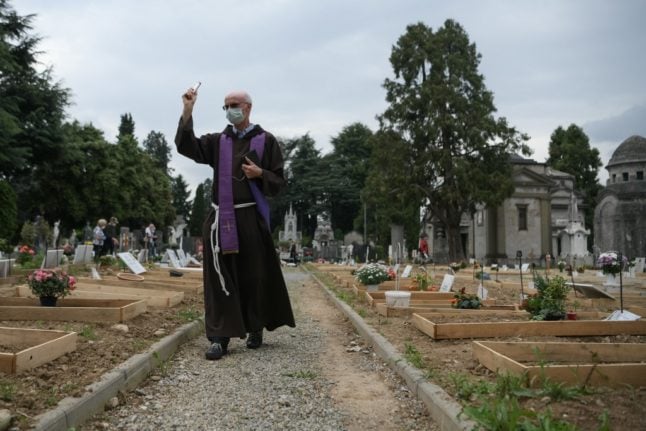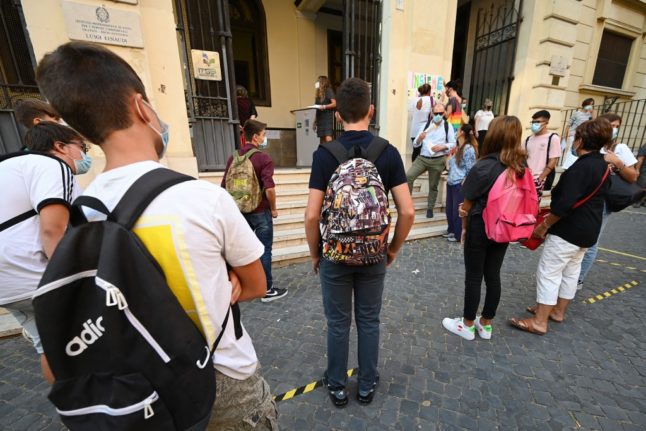HEALTH
Coronavirus death toll in Italy tops 60,000
The death toll from Covid-19 has passed the 60,000 mark, according to official figures from the Italian government.
Published: 7 December 2020 08:49 CET

A priest blesses graves in Bergamo, Lombardy, the part of Italy hit hardest by the coronavirus outbreak. AFP
Restrictive measures aimed at stemming the spread of the virus have nonetheless eased in several regions as the rate of infection stabilised in many areas.
Italy, the first European country to be hit by the global pandemic, has now recorded 60,078 deaths from 1,728,878 infections in total, the health ministry reported on Sunday evening.
Despite steps the government has taken to curb infections and care for the sick, hundreds of people are still dying daily.
Italy saw a record 993 deaths on Thursday, the highest toll since the outbreak began in the first months of the year.
Italy is believed to be among the countries with the highest number of deaths among its population with 98 fatalities per 100,000 inhabitants.
Its mortality rate, or the ratio of deaths to infections, has been calculated at 3.47 percent. Only Britain has a higher rate in Europe, with 3.55 percent.
However, Italian health experts were quick to point out last month that the apparent lethality rate figure “means nothing” in Italy, because of the way it is calculated, and that it is difficult to compare Italy with most other European countries because of its unusual demographics.
The Italian government on Friday brought in a set of new rules aimed at stemming the spread of the viirus.
It included tougher restrictions on travel to and within Italy as the government fears a third wave of infections could be triggered by festive gatherings.
Italian Health Minister Roberto Speranza warned that “if we drop our guard, we run the risk of finding ourselves in January and February facing a new (infection) surge.
“And that we cannot allow,” he told SkyTG24 television.
He announced a ban on movements between regions from December 21 until January 6, including on visiting second homes.
There is also a ban on moving from one town to another for December 25 and 26 as well as on January 1.
A curfew from 10 pm until 5 am remains in place, lasting until 7am on New
Year's Day.
Ski slopes and mechanical lifts are to remain closed until January 7.
Url copied to clipboard!


 Please whitelist us to continue reading.
Please whitelist us to continue reading.
Member comments